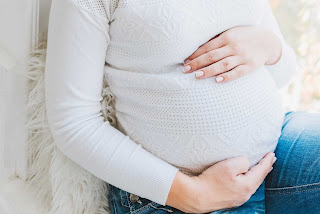It is known that exposure to certain viral infections shortly after birth or during pregnancy can impact a baby’s brain development or affect their development later in life, but it is not known if this is the case with SARS-CoV-2 infection. The SINEPOST (SARS-CoV-2 infection in neonates or in pregnancy) study, led by the University of Bristol in collaboration with researchers from the National Perinatal Epidemiology Unit (NPEU) at the University of Oxford, Imperial College London, and University of Leicester, aims to compare the impact of SARS-CoV-2 on the development of children who were exposed to the virus during pregnancy or shortly after birth to infants who have not been exposed to the virus.
Two hundred and fifty-seven infants have already been enrolled into the study, with recruitment ongoing until October 2022. The children will be followed up when they are 21 to 24 months old, with parents or carers being asked to complete questionnaires on how their child is developing.
The questionnaire will include the Ages and Stages Questionnaires (ASQ) used by professionals to monitor a child’s developmental progress; the Liverpool Respiratory Symptoms Questionnaire (LRSQ) which assesses patterns of wheezing and other respiratory symptoms in infants and preschool children; and additional questions about the child’s general health and use of health care services.
Most newborn babies infected with SARS-CoV-2 have mild or no symptoms, however they might be at risk of long-term effects. The SINEPOST study will add to what is already known about the impact of exposure to COVID-19, and increase our understanding of the short- and long-term impact of exposure in newborns.
Dr Ela Chakkarapani, Consultant Senior Lecturer in Neonatology at the Bristol Medical School: Translational Health Sciences (THS), said: "To understand the long-term effects on newborns who are exposed to SARS-CoV-2, we will assess how children develop when they grow using standard developmental questionnaires completed by parents. The results from our study will help inform guidance for pregnant women and new parents and also will help identify children who might need additional support. It will also stimulate research into new interventions to reduce the long-term impact of the virus on children's lives."
Dr Caroline Johnston, Senior Research Manager at Action Medical Research, commented: "Action Medical Research has been at the forefront of funding pioneering research, including the research which led to the development of the polio vaccine. We understand the devastating impact that the COVID-19 pandemic has had on all people, particularly children. We are committed to funding research that ultimately will improve the health and wellbeing of children and young people."
A study of 427 pregnant women admitted to hospital with confirmed SARS-CoV-2 infection between 1 March 2020 and 14 April 2020 found that the number with confirmed SARS-CoV-2 infection in pregnancy was 4.9 per 1000 pregnant women.The UK Obstetric Surveillance System (UKOSS) and newborn infants (British Paediatric Surveillance Unit, BPSU) have also identified over 1,300 pregnant women and 100 newborn babies with confirmed SARS-CoV-2 infection up to August 2020
Published in BMJ journal
Source/Credit: University of Bristol
med062722_02








.jpg)